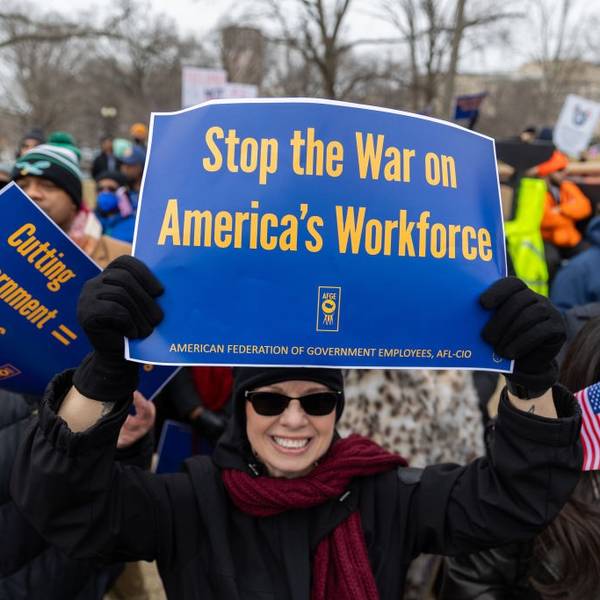As part of its broad and relentless effort to roll back longstanding workplace safety regulations that have drastically reduced on-the-job injuries and deaths over the past several decades, President Donald Trump's Department of Labor (DOL) has officially sent the White House a proposal to allow teenagers to "spend full days operating chainsaws and meat slicers and working in other dangerous occupations."
"Expanding exemptions for hazardous jobs--especially without adequate oversight--will undoubtedly reverse the progress we have made over the last two decades to ensure our young people live safe and healthy lives."
--Rep. Keith Ellison
With the department's plan now before the White House's regulatory review office, the proposal to loosen child labor restrictions--which has been denounced by workers' rights advocates, lawmakers, and former DOL officials--is "one procedural hurdle from public release," reports Ben Penn of Bloomberg Law.
"The Office of Information and Regulatory Affairs will now review the proposal and send it back to the DOL for final edits before it can be published for public comment," Penn adds. "This regulation would call for relaxing current rules--known as Hazardous Occupations Orders or HOs--that prohibit 16- and 17-year-old apprentices and student learners from receiving extended, supervised training in certain dangerous jobs. That includes roofing work, as well as operating chainsaws, and various other power-driven machines that federal law recognizes as too dangerous for those younger than 18."
When the Labor Department's proposal was first reported in May, Reid Maki, coordinator of the Child Labor Coalition, said that rolling back restrictions barring teenagers from working in certain jobs would be a "tragic mistake and would lead to the death of teenage workers."
With these potentially disastrous consequences in mind, Rep. Keith Ellison (D-Minn.) has been leading the congressional opposition to the DOL plan, arguing in a recent letter (pdf) to Trump Labor Secretary Alexander Acosta that the proposed regulatory rollback "could jeopardize the safety of America's youth."
Noting that the U.S. still has a long way to go when it comes to workplace safety, Ellison argued that real progress has been made over the past several decades in reducing workplace injuries and deaths. The Labor Department's plan, Ellison concluded, would negate these life-saving improvements.
"Due to physical and psychosocial factors, young workers have a higher incidence of work-related injuries. Minors do not have fully developed decision-making skills, which can lead to risk-taking on the job," Ellison wrote. "Expanding exemptions for hazardous jobs--especially without adequate oversight--will undoubtedly reverse the progress we have made over the last two decades to ensure our young people live safe and healthy lives."




